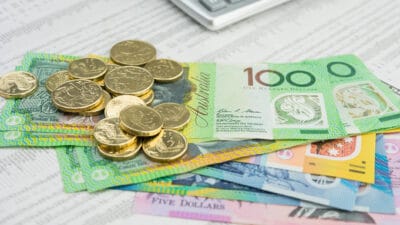ASX shares are set for another eventful week.
Here are the most important events to keep an eye on, according to eToro market analyst Josh Gilbert:
1. Australian consumer confidence
What a difference one month makes!
Last month, after the Reserve Bank of Australia held its cash rate steady after raising it for 10 consecutive months, Australian consumer confidence rocketed 9.4% higher.
"However, that confidence might be short-lived as the RBA increased its cash rate this week by another 25 basis points to 3.85%," said Gilbert.
"This rate hike will squeeze household budgets even further, with retail sales already showing that consumers are spending less, which is the RBA's aim."
The May interest rate rise would "undoubtedly" make this week's confidence update more pessimistic, he added.
"A saving grace for the index may be the increase in Australian house prices in April for the second month in a row, which may provide some relief to homeowners."
The better news in the longer run is that Gilbert reckons the Reserve Bank's shenanigans might be over for now.
"It seems that the RBA is now done with its hiking cycle, with rate cuts to occur in the second half of the year, which should help to increase consumer confidence significantly."
2. US inflation influences stocks everywhere, including ASX
According to Gilbert, this month's 25 basis point increase in the US could be the final chapter in the "largest hiking cycle for decades".
"With inflation moving in the right direction and now falling faster thanks to the banking issues in the US, the central bank appeared to soften its tone on interest rates — but reiterated that it would take time for inflation to return to target."
The massive takeaway from this week's numbers will be whether core inflation remains "sticky", because that could mean more rate rises and further downward pressure on stock prices.
Not to mention the chances of a recession.
In April, the US saw headline inflation dip to 5% while core inflation nudged up to 5.6%.
"Looking ahead to [the May] reading, headline inflation is expected to fall again, but only slightly to 4.9%, with core inflation expected to stay unchanged at 5.6%," said Gilbert.
"US Inflation is driving recession risks and the Fed, so another sharp decline in inflation will bring some further relief to investors."
3. Chinese inflation going the opposite way
Even though the other major economies are busy stamping out high inflation, China is trying to do the opposite.
"Chinese CPI rose by 0.7% in March but fell from 1% in February, compared to 6.3% in Australia, 5% in the US and 10.1% in the UK," said Gilbert.
"Prices in China are falling, and the People's Bank of China are providing plenty of fiscal stimulus and cutting interest rates in order to boost the economy."
The Australian economy and the stock market are closely associated with the fortunes of the world's most populous nation.
Deflation is currently the big worry for the Chinese economy.
"If goods and services continue to fall, consumers will delay spending, therefore increasing economic problems," Gilbert said.
"However, for now, the economy is recovering, with pent-up demand driving 10% retail sales growth and a sharp recovery in GDP of 4.5%."
China is now on track to be the only major economy to grow more in 2023 than in 2022, he added.
"Next week's inflation print will be a key reading on what's ahead for China, with expectations for inflation to decline once again."









